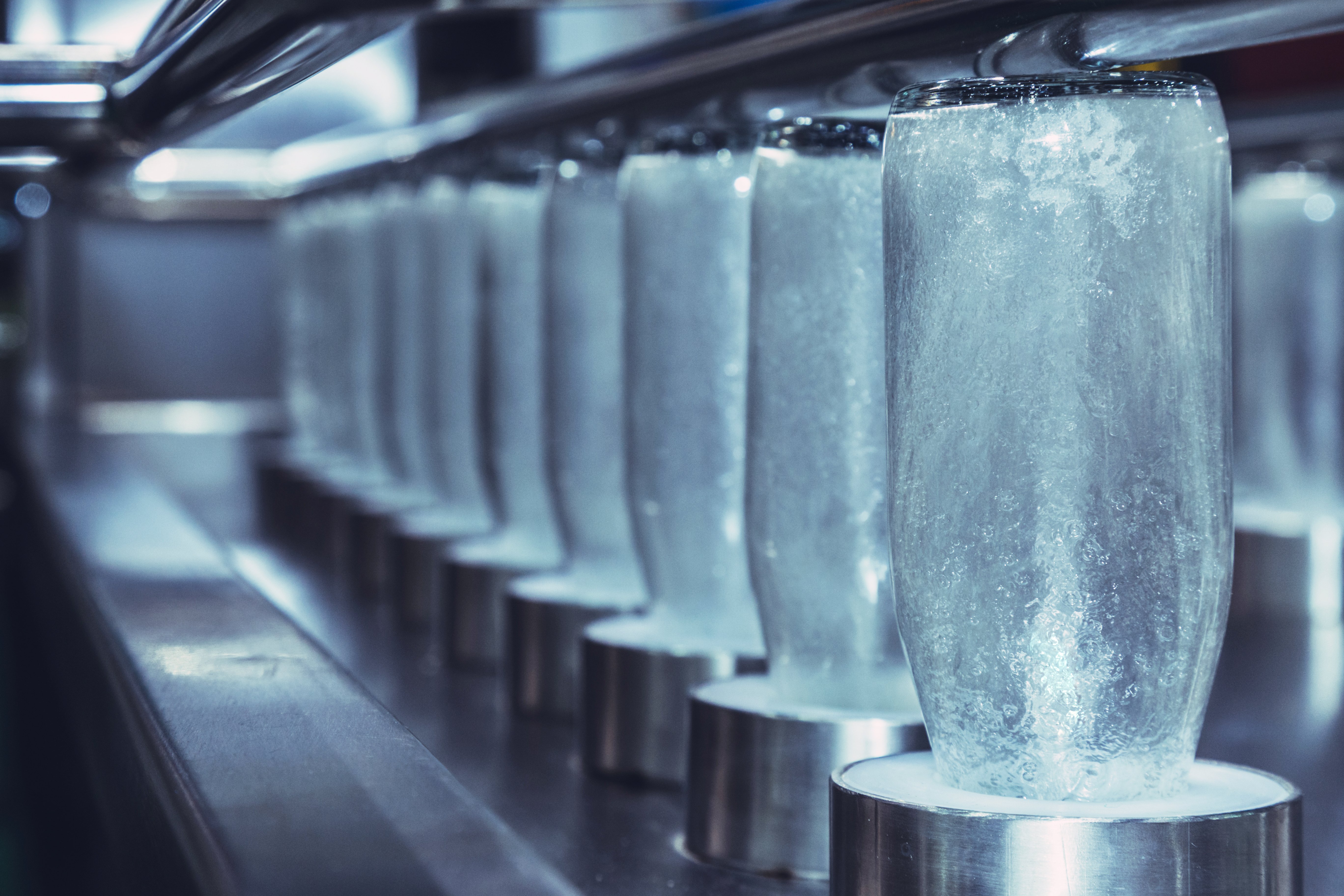Water is one of the most vital ingredients in the food and beverage industry, used in various stages of production. Untreated water can contain impurities that pose a risk to the safety and quality of the final products. The right chemicals, machinery, and know-how to treat incoming waters and process streams not only prevent water purity-related issues, but also lead to enhanced water circulation rates and a reduced carbon footprint.
Saving water within the factory
Concerns about global water scarcity have accelerated the development of solutions that enhance water circulation rates and reduce the overall water consumption.
Tunnel pasteurization, a process that involves sterilizing canned food and beverages by pumping hot water on the sealed containers, is an example of the many highly water-intensive processes in the food industry. Lots of water is needed to keep the pasteurization equipment clean and the products free of microbes and calcium residue. This process can be made more efficient with the help of tailored chemicals that prevent the formation of hard water components and microbes inside the pasteurization equipment and on the surface of the final products. Correct chemistry allows the factory to maximize the water circulation before the water needs to be discharged.

There is also an increased interest in reusing process waters within the factories as technical waters, or even back to process waters again. After discharging, the purified process waters can, for example, be used for cleaning the factory and its equipment. This is cost-saving and friendlier to the environment. Machinery that allows water sterilization chemicals to be manufactured on-site at the factory streamlines the water circulation process and leads to less transports of the sterilization chemicals.
Comprehensive solutions for incoming water and process streams
Today, controlling the water quality is important for almost any factory as it is often directly linked to process efficiency and operation costs (OPEX). Optimizing the chemistry is important, for example, for cooling waters, heat exchangers, boilers, and other process streams where deposit formation, bacteria growth, or corrosion can often be found. Here, the correct chemistry means less maintenance breaks and longer equipment lifetimes, leading to significant cost savings.
Haarla is a trusted partner supplying food grade products that ensure the safety of the production line. Our food grade solutions are optimal for food and beverage manufacturers but are just as well suited for any other industry where food grade quality is required.
Our solutions for process streams include ion-exchange resins, activated carbons and other filtration media, and a variety of complementary specialty chemicals, to name a few. Haarla’s reverse osmosis membranes that physically separate impurities come in different densities, complemented with chemicals for protecting and cleaning the membranes. Like the reverse osmosis membranes, also our ion exchange resins can be used for many separation applications. For example, they are optimal for demineralization processes to produce deionized water for boilers. Activated carbon, suitable for drinking water, condensate waters, color and odor removal and many other applications, can be supplied in various bag sizes, as bulk, or even in rental adsorbers already installed and ready for purification. Read more about our activated carbon solutions here.
If you want to discuss improving the efficiency of water use in your industry, prevent deposits, or have a situation check on the status of your process chemistry, the Haarla experts in our Enviro team are at your service.
Contact us for more information!
Markus Peräkylä
COO, Enviro Team Lead
markus.perakyla@haarla.com
+358 40 723 5262
Antti Löhönen
Solution Sales Manager
antti.lohonen@haarla.fi
+358 50 562 8302


